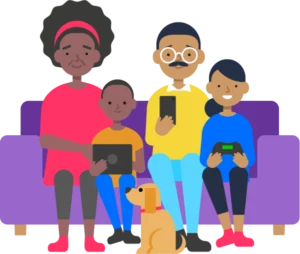Explore more

Read about the latest online safety trends and insights & find helpful resources to support children & young people online.

Latest articles & insights
Find the latest articles on online safety trends, the newest apps, insights from research and advice from experts to keep you informed.
Filter the articles by topic

 Research
Research
Rising harms, new rules: Why the Online Safety Act matters
ResearchOutlining what our data reveals about children’s experiences, why the Children Codes must be seen as a starting point and further action that's needed.
 Q&A
Q&A
How to safely support young people’s interest in online activism
Q&ASee how you can safely support young people with online activism in this article from experts.
 Press release
Press release
New report reveals 7 in 10 children experience harm online, but most don’t report it
Press releaseOur new report reveals 7 in 10 children experience harm online, but most don’t report it
 Research
Research
Understanding and improving how children report online harm
ResearchExplore how children engage with reporting tools on the platforms they use.
 Research
Research
What does the Online Safety Act mean for you and your child?
ResearchThe Policy and Research team at Internet Matters shares what the Online Safety Act means for parents and children.
 Q&A
Q&A
How to find safe online communities for kids and teens
Q&AMartha Evans, Ashley Rolfe and Allen Tsui share their insights and tips to help parents support children's safe community online.
Trending topics and apps
Explore news & opinions hub
Navigate our hub to find articles and insights from parents and professionals to support children online.
Interested in our latest announcements? See our press releases
Meet our expert panel
Our experts offer advice, information and guidance on a range of online safety issues. Learn more about their expertise.
Have you talked to your child about AI?
Explore news & opinions hub
Navigate our hub to find articles and insights from parents and professionals to support children online.
 Close video
Close video
 Close video
Close video
 Close video
Close video
Browse our resources and guides
Explore our top resources to support children’s online experiences and see how you can support our work.
Guides & resources
Our experts offer advice, information and guidance on a range of online safety issues. Learn more about their expertise.
Support our work
Helps us continue our work & equip parents & professionals with tools and advice to keep children safe online.

Get personalised advice and ongoing support
The first step to ensure your child’s online safety is getting the right guidance. We’ve made it easy with our ‘My Family’s Digital Toolkit.’



